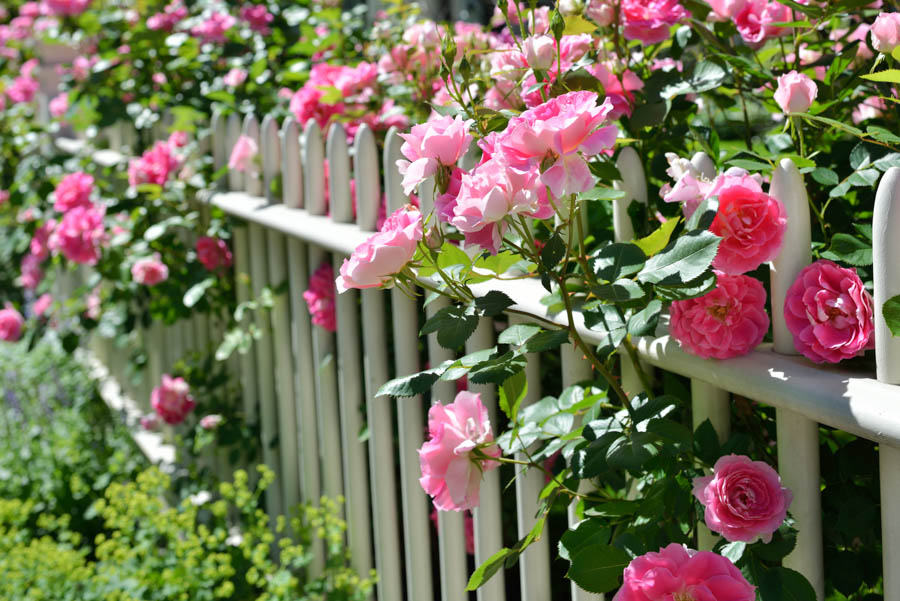Should Organic Gardeners Fertilize Their Roses?

Established roses of any variety in fertile soil with a thriving soil ecosystem may need little or no supplemental fertilization to provide abundant blooms. Species and heritage roses also may need little fertilization. Most modern roses will produce the largest, most frequent, and most numerous blooms if they receive supplemental fertilizer. Roses are often fertilized as soon as the first flush of new growth is seen in late winter in your zone, then fertilized again at the end of each bloom cycle after spent blooms are removed and as the plant sets, grows, and opens new buds. While rose hobbyists and enthusiasts may fertilize with every bloom cycle to maximize frequency, size, and number of flowers, it is not necessary to fertilize regularly for rose plants to bloom and be healthy, and many gardeners and rose lovers may prefer not to adhere to any frequent or formal schedule of fertilization.
Nutrient and fertilization needs vary widely among rose varieties and species; know your soil, the nutrients it is lacking and has in abundance, and the nutrient needs of your rose varieties and species. Most roses will perform best with supplemental nitrogen during active growth and blooming; this is the one nutrient that is most commonly lacking in otherwise reasonably healthy and fertile soils. Many soils in Southern California’s inland valleys have high levels of phosphorous and potassium, so these nutrients may not be needed in chemical soluble form unless your soil pH is alkaline, and you may do better for your roses and save money over time by encouraging a healthy ecosystem in your soil that can provide these nutrients to plants rather than simply adding soluble chemical fertilizers.
Many chemical and inorganic forms of rose fertilizer are readily available. For organic, ecofriendly rose fertilizer, GardenZeus recommends 1/4 to 1/2 cup of uncomposted chicken manure mixed well into 3 to 4 gallons of water and applied after watering as a soil drench every 10 to 14 days or on the same intervals you would othewise apply chemical fertilizers during periods of bloom. In soils with pH below 7.0 and sufficient phosphorous and potassium, urea only may be sufficient as fertilizer during blooming periods. As with chemical fertilizers, chicken manure and other organic fertilizers, particularly those high in nitrogen, can cause salt burn to rose plants, so use judiciously, be patient, and allow plants to show a growth response over at least several days to a week before considering a new application of fertilizer. In soils with low levels of magnesium and/or sulpher, roses will benefit from occasional application of Epsom Salts, about 1/4 to 1/3 cup per plant dissolved in chlorine-free water and applied to the root zone after watering.
GardenZeus recommends against fertilizing most roses during intense summer heat to avoid high growth spurts during those periods. For rose varieties that go dormant or semi-dormant, GardenZeus recommends discontinuing all fertilization about 2 months before the dormancy period begins. For many of California’s inland valleys, this often means one additional round of fertilization in early fall during a period of cooler weather, for one more round of blooms before letting the plants slow down as they approach their winter resting period.
For complete instructions for growing and fertilizing roses in your area, go to GardenZeus and enter your zip code. Roses grown in containers may need more fertilizing than their in-ground counterparts: see 6 Tips for Growing Roses in Containers.